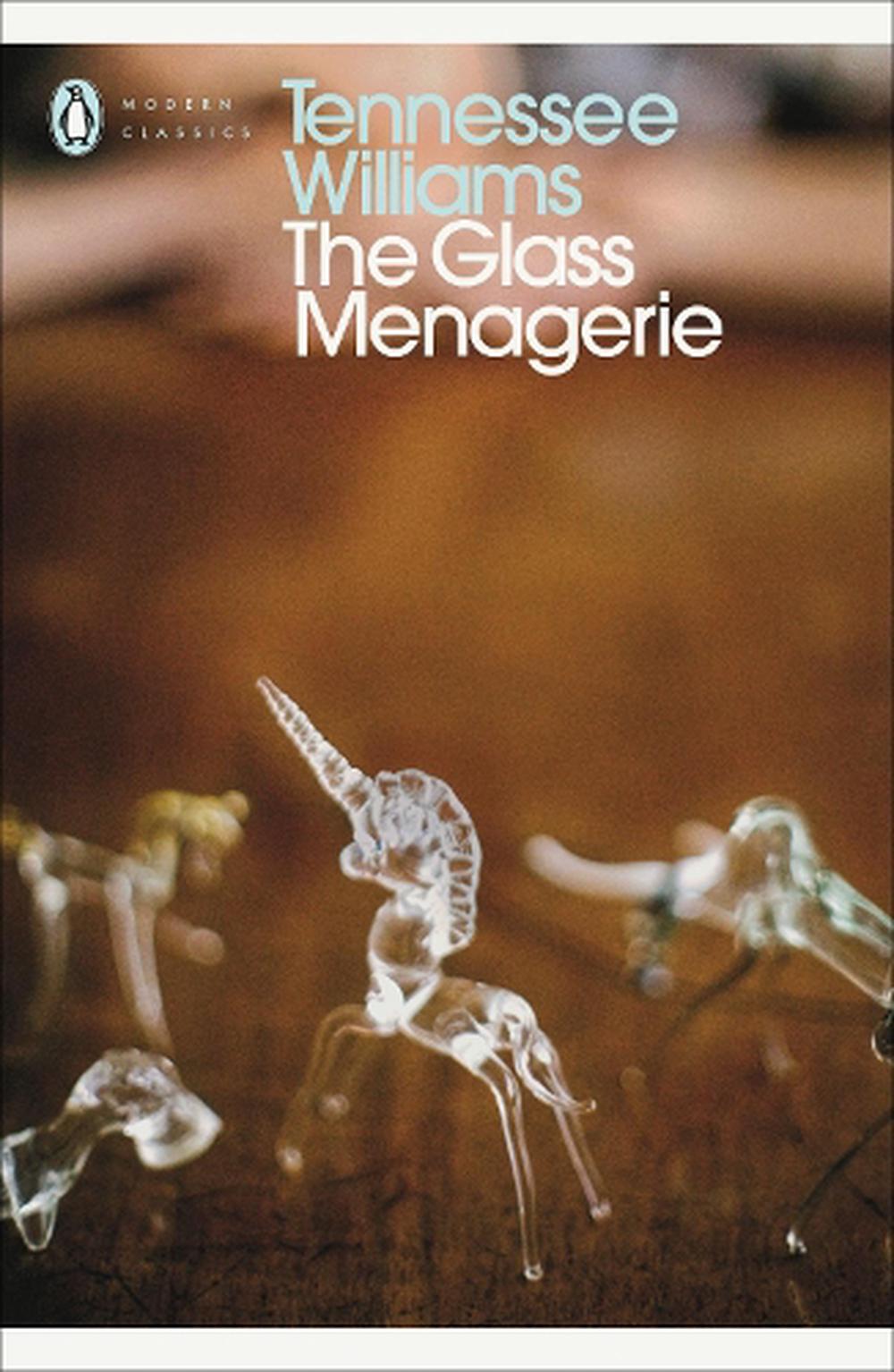
The Glass Menagerie
$25.81
- Paperback
112 pages
- Release Date
19 April 2009
Summary
Penguin Modern Classics presents Tennessee Williams’ first successful play which has continued to win audiences over ever since.
Abandoned by her husband, Amanda Wingfield comforts herself with recollections of her earlier, more gracious life in Blue Mountain when she was pursued by ‘gentleman callers’. Her son Tom, a poet with a job in a warehouse, longs for adventure and escape from his mother’s suffocating embrace, while Laura, her shy crippled daughter, has her glass menagerie and…
Book Details
| ISBN-13: | 9780141190266 |
|---|---|
| ISBN-10: | 0141190264 |
| Author: | Tennessee Williams, E. Browne, Robert Bray |
| Publisher: | Penguin Books Ltd |
| Imprint: | Penguin Classics |
| Format: | Paperback |
| Number of Pages: | 112 |
| Edition: | 1st |
| Release Date: | 19 April 2009 |
| Weight: | 91g |
| Dimensions: | 197mm x 129mm x 7mm |
| Series: | Penguin Modern Classics |
You Can Find This Book In
What They're Saying
Critics Review
With the advent of The Glass Menagerie … Tennessee Williams emerged as a poet-playwright and a unique new force in theatre throughout the world. – Lyle Leverich in Tom: The Unknown Tennessee Williams
About The Author
Tennessee Williams
Tennessee Williams was born in 1911 in Columbus, Mississippi, where his grandfather was the episcopal clergyman. When his father, a travelling salesman, moved with his family to St Louis some years later, both he and his sister found it impossible to settle down to city life. He entered college during the Depression and left after a couple of years to take a clerical job in a shoe company. He stayed there for two years, spending the evenings writing. He entered the University of Iowa in 1938 and completed his course, at the same time holding a large number of part-time jobs of great diversity. He received a Rockefeller Fellowship in 1940 for his play Battle of Angels, and he won the Pulitzer Prize in 1948 and 1955. Among his many other plays are The Glass Menagerie (1944), A Streetcar Named Desire (1947), Summer and Smoke (1948), The Rose Tattoo (1951), Camino Real(1953), Cat on a Hot Tin Roof (1955), Orpheus Descending (1957), Sweet Bird of Youth (1959), Period of Adjustment (1960), The Night of the Iguana (1961), The Milk Train Doesn’t Stop Here Anymore (1963; revised 1964) and Small Craft Warnings (1972). He died in 1983.
Returns
This item is eligible for free returns within 30 days of delivery. See our returns policy for further details.




